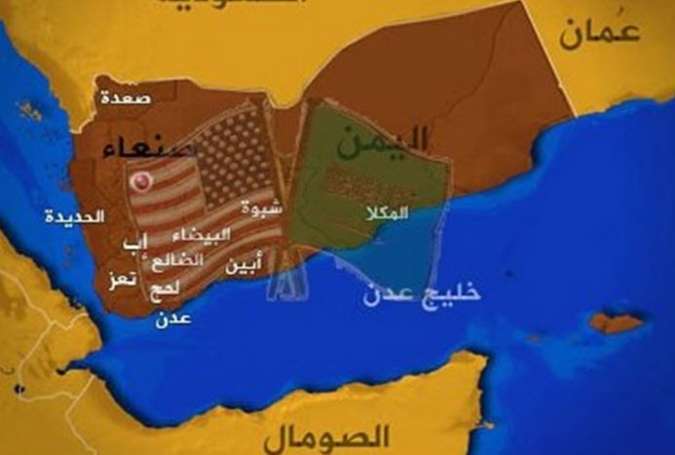Seyed Hadi Afqahi, in an interview with the website of the Strategic Council on Foreign Relations, referring to the declaration of autonomy of the UAE-backed militia group in southern Yemen, noted that what is called “Ansarullah Opposition Front” or “South Yemen Transitional Council” with Sanaa as the capital is, in fact, a metaphor because there is no such thing as a united front in this country, but it seems that the agreement is that “the enemy of my enemy is my friend”!
He added: “The UAE is opposed to Ansarullah and the unity of Yemen and seeks to develop authoritarian domination over the maritime areas, especially the important ports and strategic islands of the country. Saudi Arabia, meantime has claimed all over Yemen. Together, their interests intersect at a common point called greed for God-given wealth, strategic location, and Yemen’s position on the eastern side of Bab al-Mandab.
The West Asian affairs expert said that the deadly blows that Ansarullah and the Yemeni army inflicted on Saudi Arabia’s military gave Sanaa the upper hand. He added as these victories increased, so did the conflict between Saudi Arabia, the United Arab Emirates, and other groups opposed to Ansarullah, as well as the occupying presence of the UAE and Saudi Arabia. So in the current situation in southern Yemen, there are several claimants, including separatists, pro-UAE autonomous groups and Saudi Arabia, whose supporters have had bloody clashes on several occasions.
South Yemen Autonomy the Culmination of Saudi-UAE Conflict
Referring to the Yemeni transitional parliament’s move to establish an autonomous government in Aden, he added: “This shows the height of the conflict between the UAE and Saudi Arabia, to the point that Mansour Hadi was threatened with assassination in Aden and was not allowed to enter the region. Although Riyadh and Abu Dhabi tried to keep the conflict secret to save face but they would not reach an agreement and these irreconcilable contradictions are constantly evolving. And this is in the interest of the Ansarullah Front and the Yemeni army, that is, in the interest of the Sanaa Front.
Referring to the role of the United Nations in this regard, Afqahi also said: “Unfortunately, the UN envoy has an aggravating role in the Yemeni crisis. He is British and does not play the role of a mediator, but his performance in the Balkans and the books he has written clearly show that he is not an ordinary person. He has valuable experience in creating a regional crisis and has sided with Saudi Arabia against Ansarullah Front and has played a role in exacerbating the crisis in southern Yemen. This role is played both between Aden and Sanaa, i.e., the two fronts of Ansarullah and Saudi Arabia, and between the Adenis themselves, namely the UAE and Saudi Arabia.
He stressed that the escalation of tensions is in the interest of countries that sell arms to these states, led by the United States, which supplies arms to both Saudi Arabia and the United Arab Emirates and creates tensions between them.
US, Saudi to Carry Out Yemen Partition Scheme
Afqahi explained that what is happening in south Yemen, especially with Aden playing a central part is the plan to divide Yemen: Saudi Arabia is focused on this demand because it is disappointed with the overthrow of Ansarullah and the recapture of Sanaa and Yemen.
Unfortunately, the United Nations has remained silent on the issue. Apparently, behind the scenes, US and UN officials and the Zionist regime and Saudi Arabia have concluded that now that they cannot exercise their authority and hegemony over the whole of Yemen, they can control it by managing the southern part of the country so that they can invest in those areas. As for the Saudi oil pipeline, instead of crossing the waters of the Persian Gulf and the Strait of Hormuz, it wants to export its oil by crossing the Oman Sea.
Riyadh, Washington Cannot Expose Conflict with UAE
Regarding the harms Saudi Arabia and the United States are suffering due to the UAE’s performance in the region, he said: “They themselves are creating this crisis in Yemen. The Emirates now has more power in southern Yemen and has rejected the Saudi envoy. Saudi Arabia and the United States cannot publicize their conflicts with the UAE there and show that they have irreconcilable contradictions. They only say that we must reconcile the Yemenis! But behind the scene, on the one hand, are Saudi Arabia and the United States, which are losing their influence, and on the other hand, the UAE, which is strengthening its influence.
At the same time, the West Asian analyst stressed that the changes in geography and history are not easy, and this is a temporary change. Yemen has already had a history of division and disintegration. Saudi Arabia and the United States do not have a long-term view of this region, because they know that these plans cannot be sustained. They are moving towards the division of North and South Yemen, but in the long run, people will realize that the North and the South are the ones to get hurt and therefore they will be reunited.










0 Comments